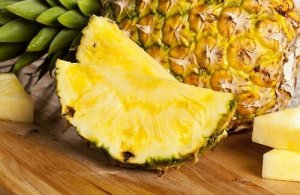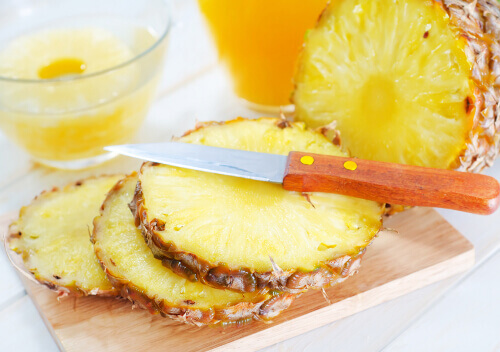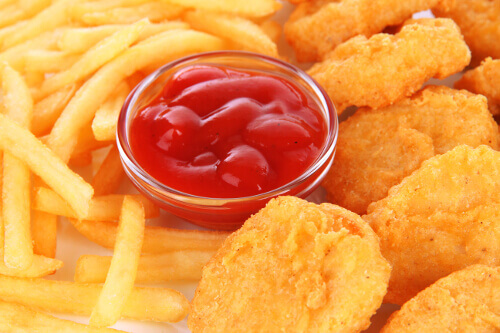What to Eat and What Not to Eat During Your Period

During that time of the month, women can get more stressed out and suffer from mood swings. By eating the right foods and avoiding the wrong ones, you can help reduce stress and stay bright and breezy. In this article, you’ll discover great nutritional tips on what to eat and what to avoid during your period.
Recommended foods
Beans
The high fiber content in beans and peas helps reduce congestion and cramps. This extra fiber also helps reduce the chances of suffering from constipation and diarrhea. Legumes also contain a lot of B vitamins, which prevent cramps and fatigue at that time of the month. If you pass more gas when you eat beans, eat small amounts and increase them slowly over time.
Vegetables
Green vegetables are rich in calcium, magnesium, and potassium and relieve and help prevent menstrual pains. These minerals can help ease tensions and relax you. Green vegetables also help with irritability and contain a lof of vitamin K.
Omega-3 fatty acids
Prostaglandins are substances that induce muscular contractions and menstrual pain. Omega-3 fatty acids can help fight them. You can find omega-3 in salmon, nuts, and flax seeds. A 1995 European Journal of Clinical Nutrition study showed that women who consumed more omega-3 fatty acids had fewer symptoms before and during their periods.
Pineapple

A Grand Forks Human Nutrition Research Centre report stated that young women who consumed small amounts of manganese had an increased blood flow. This is why doctors recommend consuming more of it. A lot of fruits are rich in manganese, but pineapple contains the most. Pineapple also contains bromelain, an enzyme that relaxes the muscles and prevents menstrual cramps.
Tea
Tea contains manganese However, women should avoid caffeinated tea, which can worsen symptoms. You can also drink ginger tea to prevent nausea and abdominal bloating. Chamomile tea also has anti-spasmodic qualities and can help relieve tension, anxiety, and irritability.
Water
Water retention is one of the main causes of symptoms like cramps, which cause sharp pains. One of the best ways to reduce water retention, though it might seem contradictory, is to drink enough water. If a woman doesn’t drink enough water, her body has to compensate for the deficiency by retaining more of it.
Whole grains
A study carried out by British doctors showed that eating small amounts of carbohydrates every three hours and before bed can help fight premenstrual syndrome. Whole grains also provide a lot of magnesium, which reduces neuromuscular tension. In addition, they contain B vitamins and vitamin E, which helps reduce fatigue and depression.
Yogurt
Yogurt contains live cultures and active bacteria that promote healthy digestion. Also, yogurt is a good source of calcium. Consuming twice the average amount of calcium (1300 milligrams instead of 600) every day may relieve menstrual discomfort. However, since meat and dairy products contain arachidonic acid, which increases the production of prostaglandins, which in turn cause cramps, women are better off opting for non-dairy sources of calcium. Some options are broccoli, kale, tinned salmon, and foods fortified with calcium such as cereal and juices.
Read this interesting article next: Easy-to-Make Natural Homemade Yogurt
Foods you should avoid during your period
Caffeine
Avoid caffeine and products like chocolate, sodas, tea, and coffee during your menstrual cycle. Caffeine narrows the blood vessels and dehydrates the body, which can cause headaches and may increase anxiety during your period.
Processed foods
Reducing how much sodium you consume can help with water retention and bloating. It’s best to avoid canned and processed foods like cold cuts, cheeses, soy sauce, and any food that contains 200 mg of sodium or more per portion.
Fried foods

Fatty foods like meat, whole dairy products, and fried foods increase estrogen levels. All types of fat increase estrogen levels. Maintaining stable estrogen levels means that the changes in the uterus won’t be as dramatic, thus reducing cramps and pain.
Sugar
Refined sugar increases blood sugar levels, making us lethargic and grumpy. Avoid eating too much sugar. Try to eat fewer pastries, sweets, cereals, and white flour, all of which your body quickly turns into sugar. Try to eat small, regular meals during the day instead of three large meals. This way, you’ll have more balanced blood sugar levels and you’ll be in a better mood.
This text is provided for informational purposes only and does not replace consultation with a professional. If in doubt, consult your specialist.








